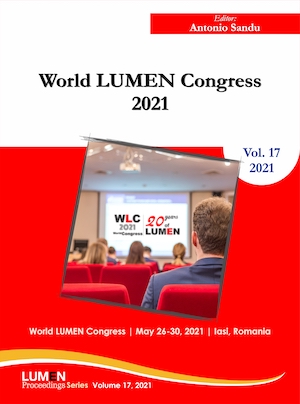The Ethics of Elie Wiesel`s Storytelling as a New Theoretical Approach in Representing the Holocaust
The Ethics of Elie Wiesel`s Storytelling as a New Theoretical Approach in Representing the Holocaust
Author(s): Alina Marincean
Subject(s): History, Language and Literature Studies, Jewish studies, Studies of Literature, History of Antisemitism, American Literature
Published by: Editura Lumen, Asociatia Lumen
Keywords: ethics;Elie Wiesel's Storytelling;Holocaust;Theoretical Approach;
Summary/Abstract: Grounded on Giorgio Agamben's assertion that once the historical, technical and legal context of the Jewish genocide has been sufficiently clarified, we are facing a serious challenge when we really seek to understand it and becomes more thought-provoking when we try to represent it. The difference between what we know about the Holocaust and how this delicate issue should be represented is facing major challenges in the context of content abundance on both Holocaust classical analyses or contemporary digital formats.Contemporary society is facing ethical and emotional limitation regarding Holocaust representation. What is the right way to represent the Holocaust after eight decades since the Holocaust took place is one of the relevant questions that arises in this context? How to live, what to do, and how do the consequences of my actions affect society after the Holocaust experience,are some of the quests of Elie Wiesel’s life. The paper will highlight how his storytelling provides some guidelines for shaping a possible good way of representing the Holocaust and what are its resources. It will also illustrate what are the ethical components of his storytelling that constitute an example of ethical conduct and give some relevant suggestions on how to instrument them in order to place Holocaust representation on a progressive way of reflection.
Book: World Lumen Congress 2021
- Page Range: 396-411
- Page Count: 16
- Publication Year: 2022
- Language: English
- Content File-PDF

